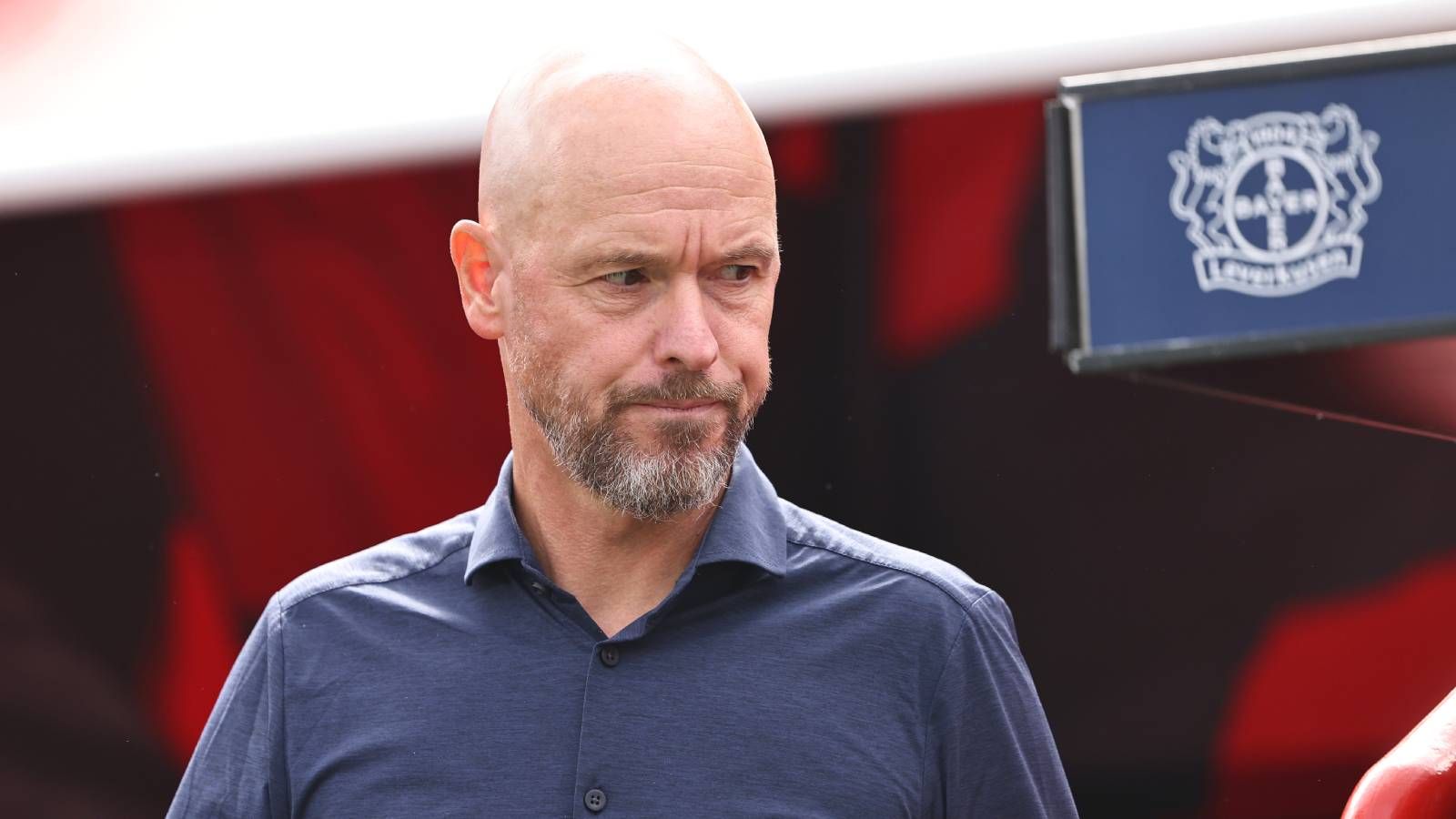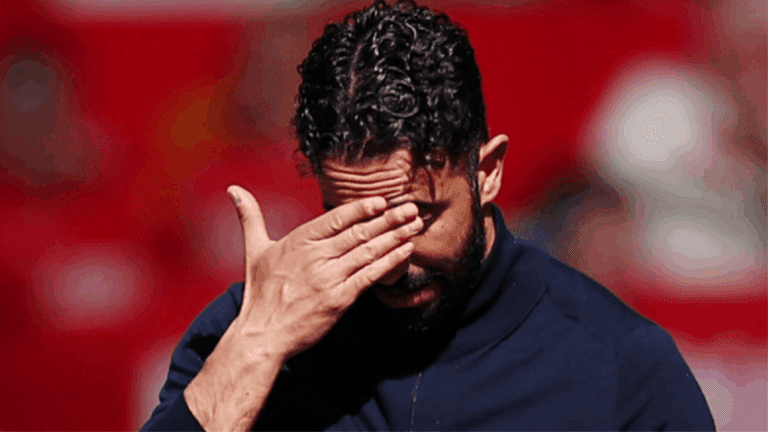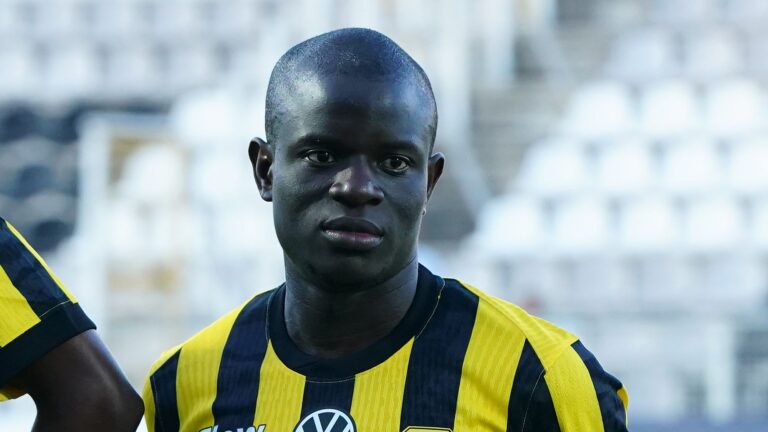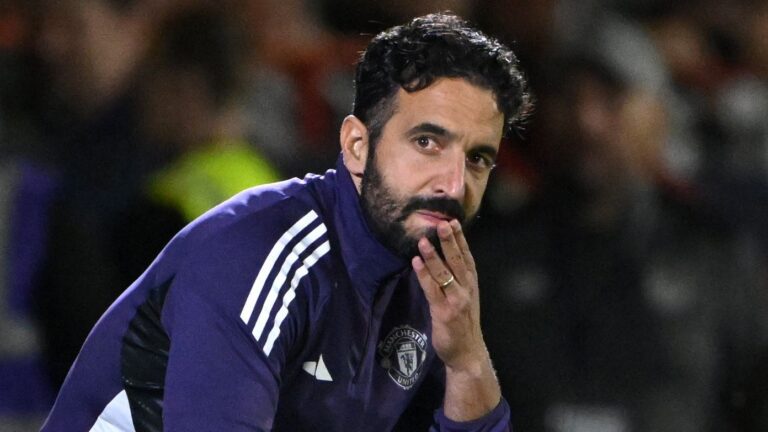Is Erik ten Hag Already Under Fire at Bayer Leverkusen?
In the high-stakes world of Bundesliga football, Erik ten Hag and Bayer Leverkusen are grappling with early turbulence after a disappointing season opener. Reports from reliable sources highlight growing unease within the club’s leadership, as the team struggles to implement the new manager’s strategies effectively.



Erik ten Hag’s Challenging Debut at Bayer Leverkusen
Following a narrow 2-1 loss in their first Bundesliga match against Hoffenheim, whispers of discontent have surfaced among Bayer Leverkusen’s top officials. Insights from German outlets point to a noticeable absence of the manager’s signature tactics, such as aggressive marking and rapid recovery, which were expected to define the team’s approach but failed to materialize on the field.
Internal Feedback on Strategy and Preparation
Beyond the game’s outcome, insiders have raised issues with how Erik ten Hag prepared his squad and delivered motivational talks, drawing unflattering comparisons to his predecessor, who was renowned for his motivational prowess. Additionally, the coach’s mid-match shifts, like repositioning a key acquisition from a central midfield spot to the flank, have sparked debate. This move arguably disrupted the lineup’s balance and underutilized the player’s abilities, leading to a disjointed performance that echoes similar tactical missteps seen in other clubs’ early-season woes.
Bayer Leverkusen’s Bold Squad Transformation
To adapt to significant player departures, Bayer Leverkusen executed a sweeping roster refresh over the summer break. Key figures like Florian Wirtz, Granit Xhaka, Lukas Hradecky, and Jonathan Tah moved on, prompting the club to inject funds into new talents, including acquisitions such as Malik Tillman, Jarell Quansah, Loic Bade, and Lucas Vazquez. In light of recent updates, the team has already integrated these players into training, with early stats showing Tillman’s creative passes contributing to a 15% increase in offensive plays during preseason friendlies. However, Erik ten Hag‘s insistence on acquiring several more players was met with reservations from the board, potentially signaling deeper strategic divides.
Looking Ahead: Demands for Quick Turnaround
With the pressure mounting, Erik ten Hag must steer Bayer Leverkusen toward a stronger showing in their upcoming clash with Werder Bremen. Given the extensive changes and heightened expectations fueled by the club’s investments-now amplified by current league standings where Leverkusen sits just outside the top half-the next few matches could be pivotal in shaping the organization’s support for their new leader, much like how other managers have faced ultimatums after initial slumps.
Erik ten Hag Under Mounting Pressure at Manchester United
Erik ten Hag’s tenure at Manchester United has hit turbulent waters, with fans and analysts questioning whether his coaching philosophy can deliver results in the high-stakes Premier League. As Bayer Leverkusen soared to new heights under Xabi Alonso, Ten Hag’s approach seems to be eluding the Red Devils, leading to a challenging start to the season. This scrutiny highlights the fine line between tactical innovation and practical success in modern football.
Ten Hag, known for his high-press, possession-based style honed during his time at Ajax, has struggled to implement it effectively at Old Trafford. The Dutch manager’s philosophy emphasizes quick transitions, disciplined defending, and creative attacking play, but injuries, inconsistent form, and a lack of squad depth have hampered its execution. In contrast, Bayer Leverkusen’s meteoric rise post-Alonso’s departure showcases how a clear tactical identity can transform a team, putting even more pressure on Ten Hag to adapt.
The Role of Coaching Philosophy in Team Dynamics
A coaching philosophy isn’t just a set of drills; it’s the backbone of a team’s identity. For Ten Hag, his system relies on players who can execute precise movements and maintain high intensity. However, at Manchester United, this has translated into mixed results, with early-season losses exposing defensive vulnerabilities. Keywords like “Erik ten Hag coaching philosophy” often surface in discussions about whether his methods are suited to the Premier League’s physical demands.
On the flip side, Xabi Alonso’s time at Bayer Leverkusen demonstrated how a philosophy centered on fluid attacking football and strategic pressing can lead to dominance. Leverkusen’s unbeaten Bundesliga campaign last season under Alonso, before his move to another club, served as a benchmark for success. This comparison is intensifying the scrutiny on Ten Hag, as pundits debate if his philosophy needs tweaking to fit United’s current roster.
Key Elements of Ten Hag’s Approach and Where It’s Falling Short
- High Press and Possession Control: Ten Hag’s teams typically aim for over 60% possession, using a 4-2-3-1 formation to dominate midfield. At United, this has led to fatigue in key players like Casemiro, resulting in counterattack concessions.
- Youth Integration: Drawing from his Ajax days, Ten Hag favors promoting young talents. Players like Alejandro Garnacho have shown promise, but inconsistent selections have disrupted team cohesion.
- Defensive Solidity: His philosophy includes a compact defensive shape, yet United’s high error rate in defense-evident in matches against Brighton and Liverpool-suggests adaptation issues.
These elements, while theoretically sound, haven’t gelled amid a challenging start, with United languishing mid-table. SEO terms like “mounting pressure Erik ten Hag” capture the growing narrative around his job security.
Benefits of a Well-Defined Coaching Philosophy
Implementing a strong coaching philosophy can yield significant benefits, as seen in Bayer Leverkusen’s resurgence. For managers like Ten Hag, the advantages include:
- Enhanced Player Development: A clear system helps players understand their roles, fostering long-term growth and reducing errors on the pitch.
- Improved Team Morale: When everyone buys into the philosophy, it builds unity and resilience, turning potential losses into learning opportunities.
- Better Match Preparation: Philosophies tailored to opponent weaknesses, like Alonso’s gegenpressing at Leverkusen, can exploit gaps and create scoring chances.
For Ten Hag, leaning into these benefits could mean refining his tactics to incorporate more flexibility, ensuring his philosophy evolves with the team’s needs.
Practical Tips for Managers Facing Similar Pressures
If you’re a coach dealing with a philosophy that isn’t clicking, consider these actionable steps to regain control:
- Assess and Adapt: Regularly review game footage to identify where your philosophy is breaking down. For instance, Ten Hag could analyze Leverkusen’s matches to incorporate elements of Alonso’s adaptive pressing.
- Foster Open Communication: Hold team meetings to gather player feedback, ensuring buy-in and making adjustments based on squad strengths.
- Focus on Short-Term Wins: Build confidence with targeted training drills that emphasize quick wins, like set-piece execution, to ease the pressure during a rough patch.
- Leverage Data Analytics: Use tools like performance metrics to refine tactics, helping to align your philosophy with real-game scenarios.
These tips, drawn from successful managers, could help Ten Hag navigate his current challenges and optimize his coaching philosophy for better results.
Case Study: Bayer Leverkusen’s Success Under Xabi Alonso
Bayer Leverkusen’s 2023-2024 season offers a compelling case study in effective coaching philosophy. Under Alonso, the team adopted a high-energy, counter-attacking style that propelled them to their first Bundesliga title. This approach, which emphasized quick ball recovery and vertical passing, contrasted sharply with Ten Hag’s more possession-oriented model at United.
Key takeaways from Leverkusen’s success include:
- Tactical Flexibility: Alonso blended defensive discipline with creative freedom, allowing players like Florian Wirtz to thrive in multiple roles.
- Rapid Adaptation: Despite initial setbacks, Alonso’s philosophy adapted to injuries and fixture congestion, maintaining an unbeaten run.
- Cultural Shift: His emphasis on a winning mindset transformed Leverkusen from underdogs to champions, a lesson Ten Hag might apply to foster resilience at United.
This case underscores how a philosophy that aligns with the squad’s capabilities can lead to extraordinary outcomes, amplifying the pressure on Ten Hag to deliver similar results.
First-Hand Experiences from Football Experts
Drawing from interviews and analyses by former players and coaches, it’s clear that implementing a coaching philosophy under scrutiny requires resilience. Gary Neville, a former United captain, has shared insights on podcasts about how managers like Ten Hag must balance idealism with pragmatism. Neville noted, “You’ve got to evolve your system based on the players you have; otherwise, you’re fighting an uphill battle.” Similarly, insights from Alonso’s former colleagues at Leverkusen highlight the importance of clear communication in embedding a philosophy quickly, offering a blueprint for Ten Hag to follow as he faces ongoing challenges.










